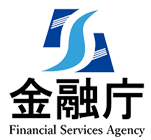List of Brokers with FSA (Japan) Regulation
The Japanese Financial Services Agency (JFSA) or commonly known as the FSA (Japan) is an international organization responsible for protecting market participants and the stability of the local financial system in Japan. As this regulator develops global standards for anti-money laundering, the JFSA's influence extends beyond Japan. The JFSA is also a member of the Financial Action Task Force (FATF).

| Established | : | 2000 |
| Country | : | Japan |
| Website | : | https://www.fsa.go.jp/en/index.html |
| Total Brokers | : | 6 |
Scroll for more details
FAQ
What does JFSA regulated mean?
Being regulated by JFSA (Japan Financial Services Agency) means operating under the standards of a Japanese financial regulator. Founded in 2000, JFSA is an independent governmental supervisory body with a main priority of JFSA to regulate the systems of financial service in Japan that include banks, securities and exchange markets, financial institutions, insurance companies, forex brokerage firms, etc.
JFSA bans any overseas broker to operate in Japan. To ensure this policy, the FSA has partnered with ASIC of Australia to prevent Australian Forex brokers from offering their services to Japanese traders. The FSA is also considered to be collaborate with CFTC, NFA, CySEC, and FCA to prevent forex brokers regulated in the US, European Area, and the UK to enter the Japanese financial market.
The agency has also modified the terms and conditions of forex trading which radically put a limit on the maximum leverage offered to clients. However, it is important to note that JFSA protect clients against broker insolvency and other broker issues through the Japanese Investor Protection Fund. All JFSA-regulated forex brokers are pushed to fulfill requirements that enable them to withstand all market eventualities like segregated accounts and other clients' protection schemes.
What is the main purpose of JFSA?
The FSA of Japan is responsible for maintaining the integrity of the Japanese economy by actively monitoring day to day performance of financial companies. The regulatory policies of financial companies in Japan are determined directly by the government. JFSA is widely known to be proactive in changing the terms and conditions of regulations to ensure that the country can tackle the volatility of the global financial markets.
Aside of being capable of banning any foreign brokers to enter Japan, JFSA requires a highly complicated and tedious process when a forex broker proposes to acquire its valid license. It practically guarantees that only high-quality brokers can operate under the JFSA.
The strict regulatory procedures and constant supervision ensure all brokers to adhere to the existing rules and put them at the risk of facing serious consequences should they indulge in any financial frauds. In the events of certain cases that put a broker against its clients, JFSA provides an opportunity for both sides to challenge a verdict in court and has the right to contact higher authorities to inform them of any wrongdoings from either side.
If you are interested to open an account in one of the brokers in the list above, make sure to try the forex demo account before proceeding to register in the live account.
Additional FAQ
What is the responsibilities of JFSA?
Located in Tokyo, the Financial Services Agency of Japan (JFSA) is the regulatory authority responsible for:
- authorizing and supervising various financial institutions in Japan, including banks, trust banks, trust companies, funds transfer and settlement service providers, insurers, securities firms, investment advisors, asset managers, and funds
- conducts inspections, exercises supervision, and promotes transparency in the financial system
Continue Reading at 6 Best Forex Broker Regulators in the World
How did Russian forex regulation become very strict?
The first official effort to regulate the industry began in 2004 through the establishment of Federal Financial Markets Service (FFMS/FSFR). After the agency's disbandment in 2013, the Central Bank of Russia took over supervising Russian forex brokers.
In 2015, the Central Bank of Russia launched far stricter law enforcement. Forex brokers were given a January 2016 deadline to obtain licenses from CBR, or abstain from carrying out their services in the region. Since then, CBR only granted licenses to a handful of brokers.
Continue Reading at Best Forex Brokers in Russia
What are the regulations for online forex trading in Nigeria?
When it comes to online trading regulation, the ambiguity of laws in Nigeria contrasts with other African countries that have already implemented regulations. For example, South Africa's Financial Sector Conduct Authority (FSCA) and Kenya's Capital Markets Authority (CMA) have already regulated online forex brokers in their countries. Furthermore, South Africa has even established rules for forex trading taxation.
Continue Reading at Is It Safe to Trade Forex in Nigeria?
What are some of the best offshore trading regulations?
Here are some of the best offshore trading regulations which attract forex traders worldwide:
- Tax Benefits: By offshore forex trading, a trader can be exempt from paying taxes in their country of residence.
- High Leverage: Offshore brokers are not being strictly controlled by their financial authorities. Due to this, they're able to offer riskier leverages up to even 1000:1 in order to attract more clients to invest with them.
- Assets Availability: Most countries have banned quite a few financial assets like cryptocurrency due to how volatile it is. Offshore forex trading is therefore extremely popular as traders don't have to worry about some assets not being available to them for trading.
Continue Reading at Your Simple Guide to Offshore Trading
Broker Categories
Minimun Deposit
Payment
Country
Established
Instruments Traded
Features
Trading Platform







